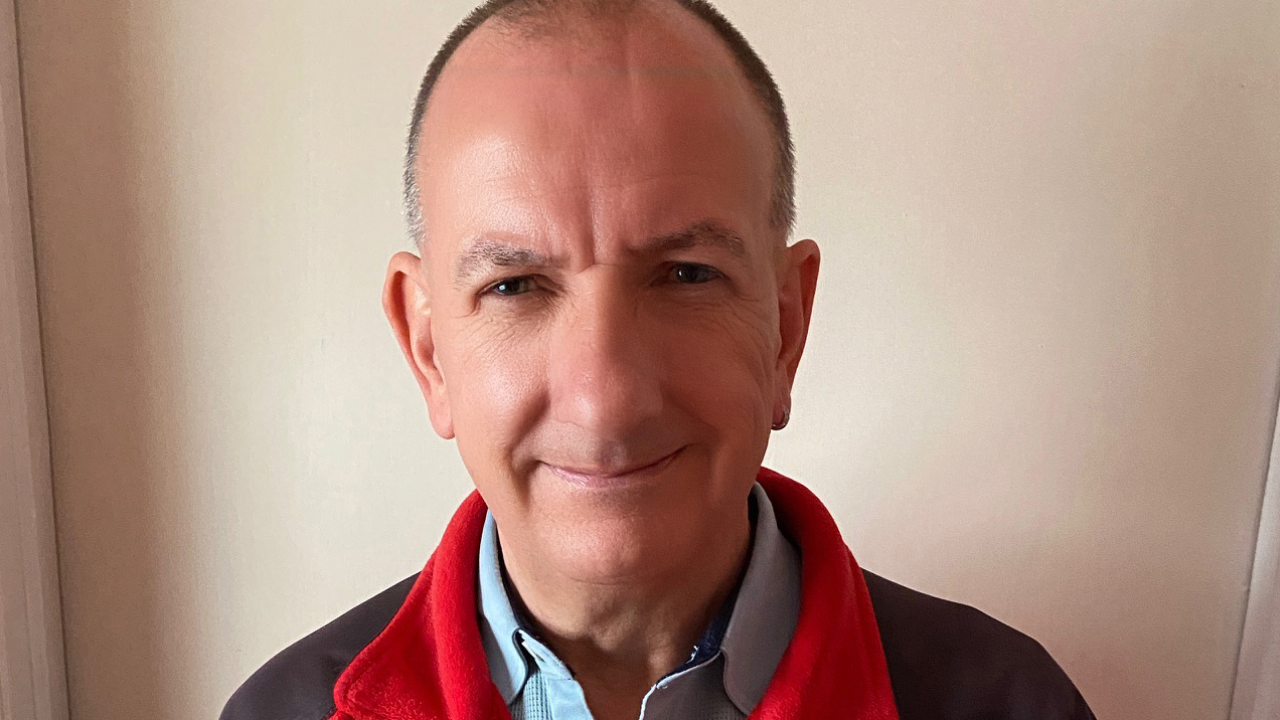"It’s the way that you’re perceived. On paper they like you, but as soon as you walk in a room, their whole demeanour changes as they start making negative assumptions because of your age."
Bill has numerous interests including cosplay, living history events, designing costumes, creating electronic music, and travel. He lives in Berkshire with his wife.
He is a highly experienced engineer, technician, and crafter, and has worked in the creative and media industries for over 30 years, including at management level. However, he’s found that finding new roles has got harder and harder, and a pattern has emerged which makes him think that ageism is the elephant in the room.
"The proportion of job rejections has been steadily climbing since my 40s but realising that something different was happening was a slow thing. Initially I listened to all the talk about the industry slowing and other factors. But patterns started to emerge that were more about the interviews and the hiring managers than the roles or my suitability.
"I receive really good feedback when I send in my CV, which I keep very skills based and non-age specific. I might have conversations over the phone too, where I’m told I’m being put forward as I seem a great match for the job on offer and that they can’t wait to meet me.
"However, their demeanour changes immediately when they see you face-to-face. It turns into a very short interview and it feels as though they can’t end it soon enough. A rejection email follows swiftly afterwards.
"Now, when I get feedback from rejections it’s usually mis-matched or very broad spectrum, such as another candidate was 'a better match to our requirements'. To my mind, this is an excuse and means 'someone younger'.
"Now I have become more attuned to this ageism, I notice it often.
"About a month ago I got a rejection with feedback that they needed someone with strong Adobe experience. When I replied that I’d been using it for years to an in-depth level, they ghosted me, it was just an excuse."
It makes you start to doubt yourself, but I know that my attitude is very positive and my skills are right up to date for the sector – I embrace new technology and innovation, it keeps your mind sharp. But that’s not the judgement that people make about you when they see that you are 60.
"I remember one incident which made me feel completely invisible. I was waiting in a large, shared reception for my interview. I saw a man in his 30s come down to the floor and look about, and I knew that he’d come to meet me. I tried to catch his eye, but he ignored me. Instead, I saw him approach several younger people directly and watched as they shook their heads as he made his way around the room. When he finally reached me, his face fell. He obviously couldn’t compute that I’d come for an interview in his high-tech industry. His assumptions were obvious.
"It’s so frustrating as I feel I lose traction as soon as I set foot through the door, just for looking older. I feel it more strongly when the hiring manager is younger, which they frequently seem to be. I can’t honestly say it’s deliberate, it’s more an unconscious bias. Psychology will tell you that people generally like to surround themselves with people like them."
This ageist treatment in recruitment genuinely makes me worry what the future holds, though. My wife has increasingly had very similar experiences to mine and as we’ve both worked in slightly precarious careers, we’re just not in a position financially to retire. I don’t want to retire either, I enjoy mixing with people in a workplace and I really enjoy my work.
"But unless someone is prepared to welcome you as a valid part of the team at 60, we’re in a financially challenging situation and it’s very hard to catch-up on reserves as there isn’t so much time.
"This does cause stress and worry, which is detrimental to your health. As you age, we’re all told to get out and engage with life and not stay indoors watching tv and becoming a burden, but when you can’t find employment, you’re pushed down that route. It makes you very cautious about what you can afford to do and limits your options.
"I think that sometimes people forget or don’t consider ageism as a form of discrimination, especially at work. Twenty years ago, I remember being told outright that a younger person 'would be a better fit with our team dynamic'. Now the lines are much more blurred. The job description might say ‘would suit a recent graduate’ or use other terminology that deliberately seeks to attract younger, not older, candidates.
"Once you know someone you can forge personal connections and have good working relationships whatever the age difference, but the problem is that at an interview people make their judgements about your abilities and skills on first impressions, based on what they perceive you to be because of your age. And in my experience, this isn’t favourable."
